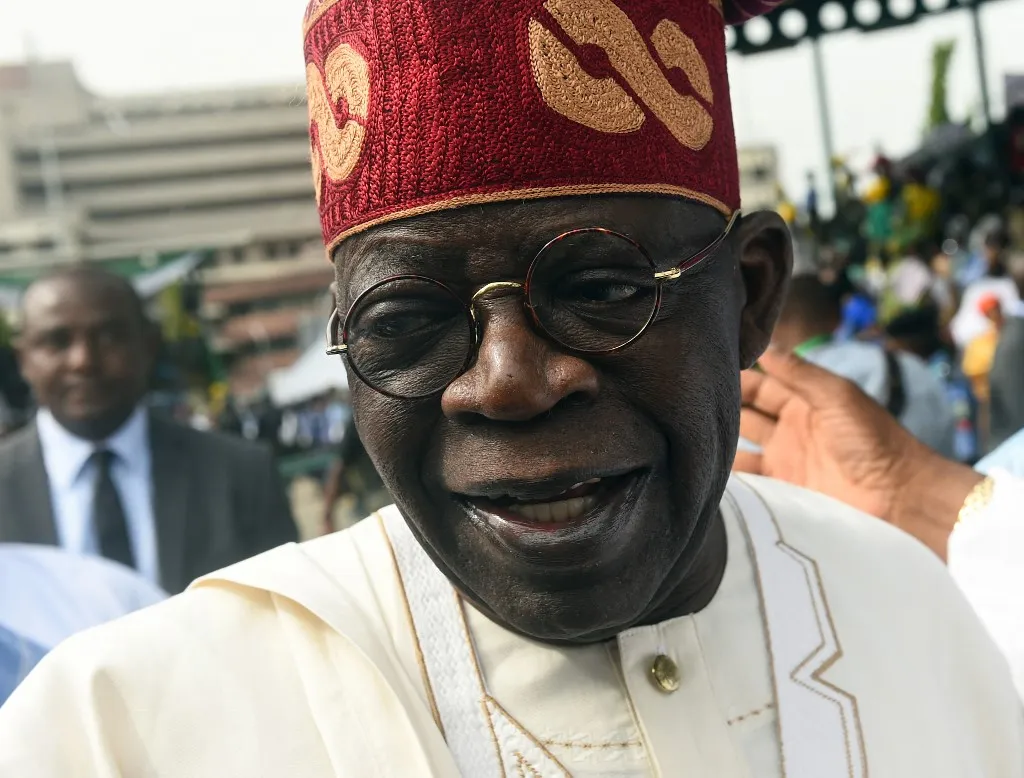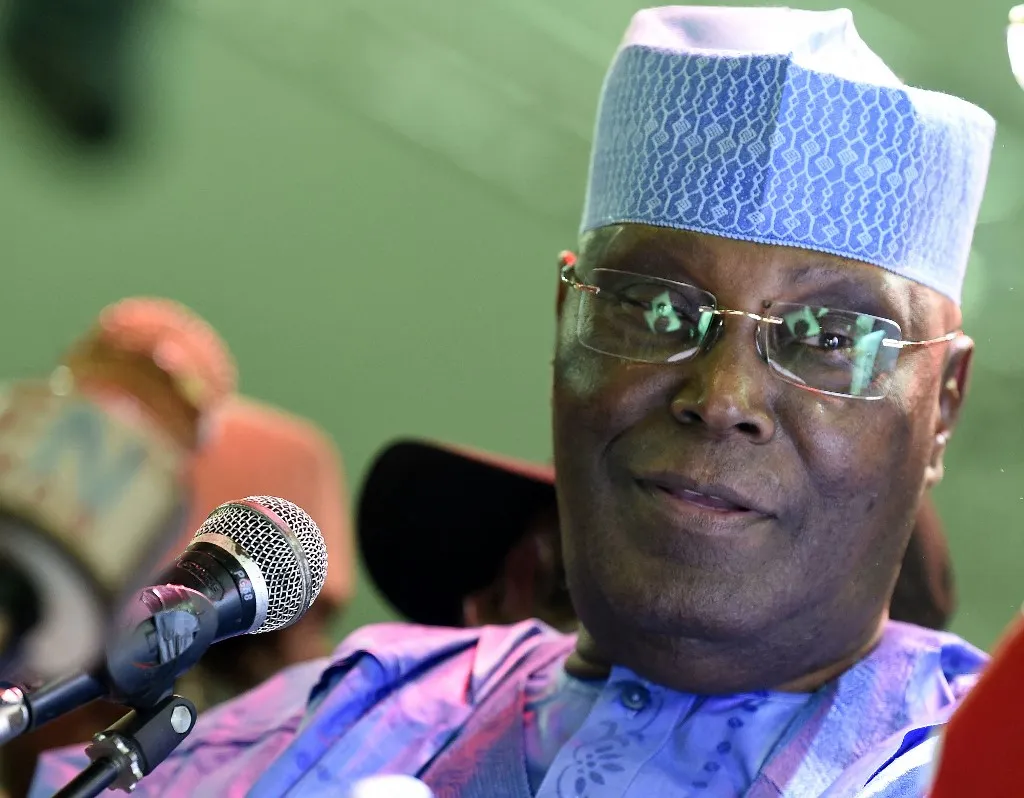One certainty about Nigeria’s next general election is that there will be no major ideological contests over economic systems among the leading political parties.
Of the three candidates with a theoretical chance of victory – Bola Tinubu of the ruling All Progressives Congress (APC), Atiku Abubakar of the main opposition People’s Democratic Party (PDP) and Peter Obi of the Labour Party (LP) – none is a firebrand radical seeking to upturn the system.
To the contrary all three are wealthy businessmen. And the economic plans they have proposed are all pro-market; the only difference is their style.
Tinubu’s plan for growth
Tinubu, 70, couldn’t be more different from President Muhammadu Buhari, the man he’s hoping to succeed. Buhari, who was brought up in the feudal political environment of Muslim northern Nigeria, had his autocratic habits and outlook honed during his climb to the top of the military. Conservative in his views, he was always suspicious of market economics and prefers a command-and-control approach to management suited to his military orientation.
By contrast, Tinubu, an accountant by profession, rose through the ranks at Deloitte and ExxonMobil in Nigeria. As a politician, he started in the progressives camp, and paid his political dues as an exile fighting military rule during the dictatorship of General Sani Abacha (who was backed by Buhari), before he was elected governor of Lagos state at the end of military rule in 1999.
From his antecedents, Tinubu will likely implement economic reforms so far resisted by Buhari, but will also maintain populist goals that will include welfare measures to appeal to his poorer supporters. Articulating his economic plans following his nomination, Tinubu said his immediate aim will be to see economic growth of 12% and more (the IMF predicts growth of just 3.4% this year).

“Stimulating jobs will be my top priority as president,” Tinubu said. “I will get Nigeria to work by launching a major public works programme, a significant and heavy investment in infrastructure, and value-adding manufacturing and agriculture.”
Tinubu’s vision in his words is for: “A vibrant, thriving, democracy and a prosperous nation with a fast-growing industrial base, capable of producing the most basic needs of the people and exporting to other countries of the world.”
Tinubu was in the past an advocate of devolving powers to the country’s regions as was the case at independence from Britain in 1960, to allow the constituent units more autonomy to develop at their own pace. Buhari opposed such reforms.
If he wins power, Tinubu may revisit such reforms, which is likely to have a major impact on the economy given that states would be able to run their own power systems, build railways and take on more active roles to grow their economy. Supporting regional power bases led by allies may appeal to a politician who was criticised during his stint as governor of Lagos for allegedly running his political empire like a kind of godfather.
Abubakar targets public sector reform
While not markedly different from Tinubu, his main rival, PDP’s Abubakar, 75, stresses the primacy of the private sector in driving economic development. The public sector will be repositioned “to focus on its core responsibilities of facilitation and enabling” economic activities, he says.
Abubakar promises to end restrictions on private investment in infrastructure projects such as refineries, rail and electricity projects to achieve the kind of impact made in the telecommunications sector with mobile phone companies. He says he will solve current problems with foreign exchange management by allowing the market to determine the rates.
“This way we shall eliminate the persistent price distortions occasioned by current interventionist exchange-rate management policy,” he said in his policy statement.

His career had started in the customs service, where he rose to become a senior official, before quitting to become a businessman. With interests in oil industry logistics, real estate, education and agriculture in different parts of the country, he’s more pan-Nigerian in his disposition than Buhari, who leans more to the north, or Tinubu, who’s more comfortable in his southwest home base.
The former vice president, who’s been trying to become president for three decades now, also favours devolution of powers to Nigeria’s regions on the grounds that the current 36-state structure, designed largely to share oil revenue, is no longer sustainable given the long-term decline of petroleum as the lifeblood of the country’s economy.
Abubakar’s critics on the left often allege that his faith in the free market will result in the country’s resources being sold to the highest bidders without requisite service in return. They illustrate the argument with his tenure as vice-president from 1999-2007, when they claim he presided over the government’s privatisation programme with doubtful results.
Outsider Obi appeals to youth vote
It’s an irony that Obi, 60, a businessman with investments in banking, services and manufacturing, is the candidate of the Labour Party, founded by trade unions and other workers’ groups to defend the interests of the poor and labouring classes of society.
Obi was aspiring to become the nominee of the main opposition PDP until three days before its May 28 presidential primaries. But he quit the race and the party, saying he couldn’t find the space to make a positive contribution. Within days he became the candidate of the Labour Party. The outsider’s strategy appears to be to exploit widespread disenchantment with the two leading parties, especially among young voters, with whom he seems to be gaining some momentum.

“History beckons,” Obi declared while accepting his nomination. “Nigerians remain hopeful for a national rebirth, which implies returning Nigeria to Nigerians: farmers, teachers, students, lecturers, artisans, workers, pensioners and over a hundred million poor Nigerians who are not sure where their next meal will come from.”
A former governor of Anambra state in the southeast, Obi focused on building a reputation for financial prudence and investing in education while developing a network of roads to facilitate economic activity. Many also found his personal example as a governor striking. He travelled without the long motorcades common with elected officials in Nigeria, flew economy class, and carried his own bags.
It’s a narrative that has suddenly put him in contention as Nigerians seek a solution to years of politicians who have presided over economic underperformance and mass unemployment. A surge of young people seeking to register to vote, apparently for Obi, has been witnessed across the country, leading supporters, opponents and observers to reassess his chances of making a mark on the race.
“I will replace Nigeria’s sharing formula with a production formula,” Obi declared, summing up his approach to economic management while referencing the sharing of oil revenue by the country’s federal, state and local governments. “All we do is share, nobody talks about production. This country ought to be more productive.”
Obi’s overtures to young voters appear to have struck a chord – more than 65% of Nigeria’s population is made up of those under 35 years, according to the National Bureau of Statistics. It remains to be seen whether their newfound enthusiasm for Obi will survive the eight months before the presidential vote in February. If it happens, that in itself will be a Nigerian revolution.
Want to continue reading? Subscribe today.
You've read all your free articles for this month! Subscribe now to enjoy full access to our content.
Digital Monthly
£8.00 / month
Receive full unlimited access to our articles, opinions, podcasts and more.
Digital Yearly
£70.00 / year
Our best value offer - save £26 and gain access to all of our digital content for an entire year!
 Sign in with Google
Sign in with Google 



